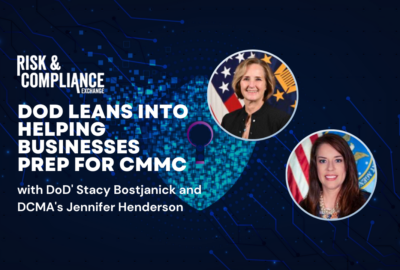Why do feds and contractors have such a bad reputation outside DC?
Two huge steps could go a long way toward healing the frustration taxpayers have with agencies and vendors, says Federal News Radio's Francis Rose in a new comm...
The Federal business community does amazing things. 
- They screw everything up. The VA crisis, HealthCare.gov and other such debacles feed the average citizen’s view of how the federal government gets things done.
- They’re lazy bureaucrats. Seldom does anyone ever ask me about the important work that only government does, like the aforementioned air traffic controllers and many others that don’t sit in cubicles and work a 9-to-5 schedule.
- They’re overpaid. And some feds may be. But no one really knows for sure. Until someone releases research that opposing sides of the federal pay debate agree is reliable, and a fair representation of compensation, before the data is collected and analyzed, this one will be hard to counter.
Similarly, I repeatedly hear some perceptions about the contracting community:
- They only care about profits. Most people think the idea of contractors as performing public service for their agencies, or in business for some reason other than making money, is ridiculous.
- They’re out to cheat the taxpayer. Or, the “Beltway bandit” theory. Since the causes behind big government/industry blowups are complicated, it sometimes appears to outsiders that they happen for underhanded reasons. The Government Accountability Office and agency inspectors general usually find problems come from inadequate or inconsistent (or both) communication between vendors and government.
- They mooch off the government. This is probably the one I hear the most, and it’s fed by data, often cited to me outside the Beltway, of ZIP codes and counties in the D.C. metropolitan area making up many of the top jurisdictions by income per household.
Two huge steps, though, can go a long way toward healing the frustration and anger taxpayers have with the government/vendor partnership. Neither will cost much money, and neither should be hard. One is for government, one for industry. Government should be more aggressive in telling its good news to people who understand it, and want to hear and repeat it. I have dozens, if not hundreds, of war stories about trying to gather details about good stories or high achievers in agencies, only to have those efforts fall into some black hole. My colleagues at Federal News Radio, and at other government business media outlets, have them too. One example: I offered an agency CIO an invitation to come on In Depth and talk about her success in a business transformation and modernization plan. Her response was, “I’ll send your request to my general counsel’s office.” I knew as soon as I read that, that was the last I would hear of that success. No other media outlet covered it either — a tremendous opportunity wasted. And I could count on both hands the number of times I’ve seen an agency reach out proactively to promote coverage of its own good governing story. Companies that sell in the government space should be more thoughtful about the stories they tell. I get dozens of press releases a week from PR firms, or vendors themselves, offering to set up meetings with me about a company’s new executive, new product offering or other new thing. Conversely, I have received very few tips in my federal career from vendors who said, “Hey, just wanted to let you know we finished ____ at the Department of _____, it finished on time, under budget and the end users love it.” And I have received exactly one formal press release like that (yes, I did an interview on it). The lack of positive stories poses two problems for agencies and vendors, one short- term and one long-term. In the short term, participants in successes never receive the kind of public recognition that could build their engagement in and attachment to their work, the kind that would motivate them to succeed again, and to stick around to succeed well into the future. The long-term problem is that there’s a limited body of evidence that any of the public’s perceptions are incorrect. Many of the stories about HealthCare.gov in general-interest media were done by people who’d never covered government before. Thus they had no context about how federal IT worked, or whether it was different from private-sector IT; and they had little to no idea where to begin to find out. They had no ready bank of success stories from which to glean thought leaders and doers to provide context, parallels, and precedents. Government needs to be more risk-tolerant and trusting of the people that do the important work of the government, and let them talk about their work. Industry needs to demonstrate its value-add beyond the shareholder community. Taxpayers in flyover America believe government and industry owe them better explanations of what they’re doing, and they’re right. The solutions will take time and effort, but they are doable — and worth it. You’re spending their money, and the citizens you serve deserve to know how well you’re doing.
Francis Rose is host of Federal News Radio’s In Depth radio show, which airs weekdays from 4-7 p.m.
Copyright © 2024 Federal News Network. All rights reserved. This website is not intended for users located within the European Economic Area.





